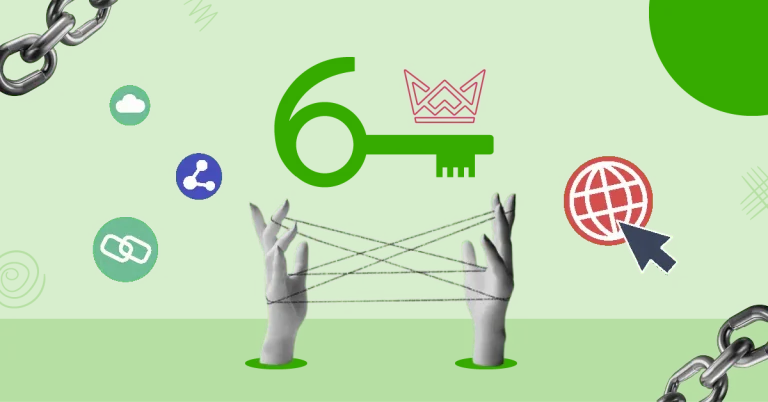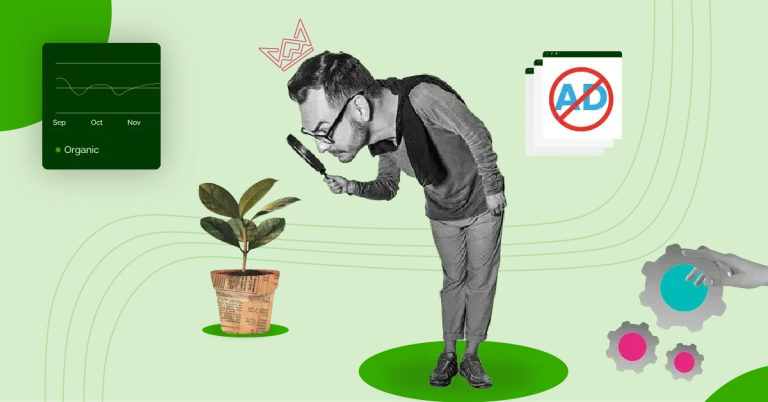A lot of local business owners find it tough to connect their websites with nearby customers. It’s not just about what they’re offering; it’s about making sure the right people find them.
Google’s goal is to show search results that match a user’s language, what they’re looking for, and especially where they’re located. But if your business isn’t giving Google the right signals, how can it show up in local searches?
This is where local link building comes in handy. It lets Google know that your business matters in local searches, helping you reach more nearby customers.
There are plenty of ways to build local links, but which ones are the best fit for your business? Let’s dive into some of the top strategies that can help get your business in front of the right people nearby.
What is Local Link Building?
Local link building is all about getting links from sites that cater to the same local crowd as you do. Think local publications, community blogs, business websites, or local directories.
While these sites usually have a smaller reach and lower domain authority compared to big national or global sites, they pack a punch because of their high relevance to your area.
Why Go for Local Link Building?
Here are three solid reasons to start building local links.
1. Reaching the Right Audience
Local links put your business in front of people who are actually nearby and might become your customers.
Consider local link opportunities…
Suppose you’re an accountant in a small East Coast town. A link from a high-authority industry site is fantastic, but if most of that site’s readers are in California, it likely won’t drive much business your way.
On the other hand, a link from a regional publication might not give as big a boost in domain authority, but it’s more likely to attract clients in your area.
That doesn’t mean ignoring broader links; they still add valuable authority and improve rankings. A mix of both types of link building—local and general—can be a great strategy for growing your site.
2. Local Links are a Valuable Source of Backlinks
Getting others to link to your site can be tough. But local backlinks are often overlooked—even smaller areas usually have tons of link opportunities.
Think of the businesses, bloggers, and local publications in your area. Each one has a website where you might secure a link.
Plus, big websites are flooded with link requests and often ignore them. Local businesses, however, might be more open to helping out, especially if you’re part of the same community.
3. Build Genuine Connections
Local link building isn’t just about links—it’s a great way to connect with other businesses in your community.
Rather than blasting out generic emails, you can call from a local number to chat about ideas. You might even stop by in person.
While these connections might not boost SEO directly, they can be valuable for your business in the long run.
How to Find Local Link-Building Opportunities?
In this article, we’ll walk you through 12 local link-building strategies. But before we dive into that, let’s start with a clever way to find link opportunities by keeping an eye on your competitors’ backlinks.
This approach means identifying competitors and using SEO tools to see which websites link to them.
This can uncover potential sites for your backlinks.
For instance, if a competitor is listed in a specific forum or directory, you could also set up profiles there. Or, if they’ve written a guest piece for a local publication, you might pitch your own article to the same outlet.
Competitive analysis involves two main steps:
- Identifying competitors
- Analyzing their backlinks
Here’s a breakdown of each step…
Identifying Competitors
You likely have a general sense of your competitors, but to discover more, search on Google using the keywords you want to rank for and check which websites appear.
For example, if you search “Florist New York,” you’ll find local florist shops as well as national directories. Focus on the local businesses in your area as these are good targets for finding backlink opportunities. Skip any broad directories that list businesses nationwide, as they’re less relevant for local links.
Try searching multiple keywords you want to rank for, list the relevant sites that show up, and then move on to see which sites are linking to them.
Checking for Local Backlinks
It’s simple to find sites that link to your competitors if you’re using an SEO tool.
You can rely on Ahrefs or Semrush to do so. Below is a quick guide on how we approach backlink analysis to uncover valuable link opportunities.
12 Local Link-Building Strategies & Tips
These 12 local link building strategies will help you build quality local links, increase your visibility, and strengthen community relationships.
1. Guest Posting
As a business owner, you have unique insights that can be valuable to your community. Use this expertise to contribute columns or guest posts for local publications.
This approach is much like guest blogging. Start by listing local outlets open to contributor pieces, then pitch your ideas to their editors.
A Quick Heads-Up on Local Publishers
Keep in mind not all local publications, especially news-focused ones, will provide a link to your site even if they mention your business. You’ll still benefit from the exposure, and other outlets might pick up the story and link to you. However, if securing a link is your main goal, check that the sites you’re targeting offer this before you pitch.
2. Niche Edits
Niche edits are a great way to build local links by placing your link into existing content on a local site. This method takes advantage of content that’s already getting attention, helping your site gain traction quickly and supporting your local SEO goals.
Here’s the basic process:
- Find Relevant Local Content: Search for local sites or blogs that cover topics related to your field.
- Reach Out to the Site Owner: Offer to enhance their content with a link to your site that fits naturally.
- Leverage Existing Traffic: Since the content is already live, your link gets immediate visibility.
Quick Tip #1
Niche edits are great when you’re looking for quick exposure. They place your link in popular content. For even more impact, mix this with guest posts to add fresh content that showcases your expertise.
Quick Tip #2
Go for content related to your industry. For instance, if you’re in real estate, target home improvement blogs or local community sites. Just make sure the content is still relevant and actively bringing in readers.
3. Local Citations
Local citations are mentions of your business name, address, and phone number (NAP) on websites, directories, and social media platforms. These listings help search engines confirm your location, boosting your visibility in local search results and supporting your local SEO efforts.
Consistency is key. Ensure that your NAP details are identical across all platforms to avoid confusion for both search engines and potential customers. Start by adding your business to major directories like Google My Business, Yelp, and relevant local websites.
Clarifying Local Citations vs. Backlinks
- Local Citations: These are mentions of your business’s NAP on other sites. They’re important for local SEO but don’t always include a direct link to your site.
- Backlinks: These are direct links from other websites to yours, which help improve your website’s authority and rankings in search results.
4. Create Locally Focused Content
Creating content that genuinely connects with your local community is a smart way to build local links. Rather than focusing only on your products or services, offer something valuable that locals can relate to—something they’d want to link to as a resource.
Think about local link-building ideas like putting together guides, lists, or resources that spotlight nearby attractions, businesses, or events. For instance, you could create a helpful guide to local parks or a calendar of seasonal festivals. Content like this can catch the eye of local bloggers and community websites.
Once your content is up, actively promote it to local sites, social media groups, and businesses. Share it around and invite others to link to it. When your content is useful and relevant, it naturally attracts local links, helping to boost your search visibility.
5. Engaging with Local Media and Press
Local media is a powerful ally for boosting your local link-building efforts. When local newspapers or magazines feature your business, it not only increases your visibility within the community but also provides valuable local backlinks that strengthen your SEO.
Start by identifying local publications, including smaller options like community newsletters or niche blogs, as they’re often keen to cover local stories.
- Show Your Community Impact: When you reach out, highlight how your business or story positively impacts the local community. This can make it more enticing for them to feature and link to you.
- Tie Into Local Events: Link your news to local happenings or events. Stories connected to what’s going on in the area are more likely to catch media attention and earn a link.
- Follow Up Politely: If there’s no response initially, send a respectful reminder. It keeps your story on their radar without coming across as pushy.
6. Sponsoring Local Events and Charities
Supporting local events like charity fundraisers or community fairs is a great way to boost your local link-building efforts. Sponsorships for these events often lead to your business being featured on event sites and social media, bringing in more local attention.
It’s also a chance to show your dedication to the community, building trust with locals. You can even create content around your sponsorship to catch the interest of local bloggers or businesses.
How to Get Started:
- Find Local Events: Look up events on community websites or social media.
- Reach Out: Connect with organizers to learn about sponsorship options and the exposure you’ll receive.
- Make Your Pitch: Tailor your sponsorship offer to fit the event and its audience.
- Check Competitors: See if your competitors are sponsoring similar events to find additional ideas.
7. Become Active in Local Forums
While forums may not be as popular as they once were, they’re still a handy tool for building local links to your website. Active forums can also be a great place to connect with people in your community.
To start, search for local forums using Google and relevant keywords. If you’re having trouble finding general local forums, try searching for fan communities of local sports teams—many of these still have active discussions.
The key to using forums effectively is to add links in a way that doesn’t look like spam. Some forums let you place a link in your bio or signature, which is a subtle, non-intrusive way to connect back to your site.
If you want to add a link within a comment or thread, make sure it’s relevant and actually helpful to the discussion. Not only can forum links boost local SEO, but they can also bring in a stream of interested visitors.
8. Offer to Provide Testimonials
Testimonial link building is a strategy where you share a positive review for a local business or service you’ve used.
The business displays your testimonial on its website and includes a link back to your site. You get a valuable backlink, while the business gets a public endorsement of its quality.
To get started, list local businesses you’d genuinely recommend. Then, reach out to them and offer to provide a testimonial.
Focus on businesses that already feature testimonials, case studies, or customer stories on their sites, as they’re more likely to include a link. However, even if they don’t have these sections, many business owners will still be open to showcasing your review—you just need to show them the value of a good testimonial.
9. Become a Trusted Source with HARO
Positioning yourself as a go-to source is a smart way to earn media mentions. By providing quotes on topics within your expertise, you add credibility to articles while gaining exposure.
Using HARO (Help a Reporter Out) is another effective approach, though it’s broader than just local media.
One of the main hurdles is connecting with journalists. Start by reaching out to contacts in your network who might know writers looking for sources.
Twitter is also a great place for this. Many journalists are active there, making it easy to engage and build connections. Other social platforms can work well, too.
You can also approach publications directly. Reach out to journalists and editors to let them know about your expertise and that you’re open to being featured in their articles.
10. Local Influencers
Partnering with local influencers or bloggers can give your business a real boost. They may not have massive followings, but their close ties to the community can enhance your reputation and provide valuable backlinks.
Many of these influencers run their own blogs, which allows for a direct link to your website. The key is finding someone whose audience aligns with your business. While it might be challenging in some fields, the right local influencer can bring significant value to your link-building efforts.
This approach isn’t only about gaining links; it also strengthens your local presence, making it easier for nearby customers to find and trust your business.
11. Monitor Unlinked Mentions
This straightforward link-building strategy involves reaching out to websites that mention your business and requesting they add a link to your site.
Though it might sound time-consuming, Google Alerts makes it simple to automate. Just go to Google Alerts, enter your business name, and customize how often you receive updates and the types of sources to track.
If your business is already recognized in your area, you may be getting quite a few mentions.
Whenever an alert pops up, check if the site links to you. If not, a friendly request to the site owner can often do the trick.
This approach not only helps with local link building but also lets you keep an eye on your brand’s mentions, giving you insight into how people are talking about your business.
12. Build a Local Resource Page for Government or NGO Links
Create a local resource page that covers important community topics, such as guides, services, or educational content. A well-made resource hub can attract valuable do-follow links from local government websites, non-profits, and community organizations.
- Pick a Specific Focus: Choose a topic that’s less covered in your area, like local sustainability projects, resources for small businesses, or a community events calendar.
- Reach Out to Relevant Groups: Once your resource page is live, connect with local government offices, non-profits, or community organizations that might benefit from sharing it on their sites.
- Highlight the Value: Emphasize how this resource adds value to the community, making it more likely for these organizations to link to it.
How Many Local Links Should We Build?
The amount of local links you need largely depends on the activity of others in your industry. Checking how many links your close competitors are building can offer a good sense of what’s required to keep up.
For example, if your website has a Domain Rating (DR) of 50, look at competitors with DRs around 52 to 55. Tracking the links they’re adding over time can help you set realistic goals for your own link-building efforts.
A link-building specialist can be useful here. They can review your backlink profile and provide guidance on the number of links you’ll need to stay competitive based on what others are doing.
Boost Your Local SEO: Hire Freelance Local Link Builders on Konker
If you want to improve your business’s visibility in local searches, hiring a freelance local link builder can be a game-changer. Freelancers on Konker specialize in building high-quality local links that help you stand out in your community. They understand the importance of relevant, local backlinks and have the expertise to secure links from trusted local directories, community blogs, and other key sites that matter for local SEO.
Find experienced freelancers on Konker who can:
- Develop a customized local link-building strategy
- Secure links from trusted community sources
- Monitor and adjust campaigns for optimal results
Konker makes it easy to find a skilled local link builder who can help drive targeted local traffic to your business.








Leave a Comment